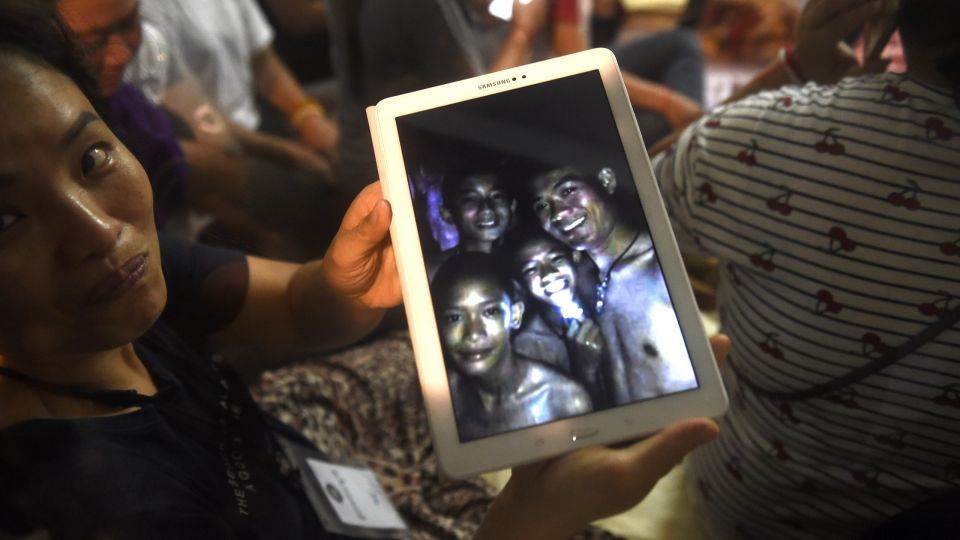July 4, 2018
A child psychologist offers advice on easing the cave-trapped boys in Thailand back into normal life while they await rescue.
A psychiatrist who specialises in child and adolescent issues offered guidelines on Wednesday by which the 12 young footballers trapped in the Chiang Rai cave can avoid lingering trauma over their ordeal.
Dr Wimonrat Wanpen, deputy director of the Rajanagarindra Institute for Child and Adolescent Mental Health, said the earliest signs were good, based on the brief conversation the youngsters had with the British cave rescue experts who found them and videotaped the encounter.
The boys seemed happy, she said, but nothing else can be concluded at this stage.
Their mental condition after days of being trapped in the dark, flooded cave could swing, Wimonrat said.
“While they were waiting for help, they might at times have felt angry at having to undergo such an ordeal and at other times despair, and then they’d become hopeful that help was on the way,” she said.
“They might have been mentally bargaining with themselves – ‘If I get out, I won’t do this or that and I’ll be good’ – or whatever. Children face different mental impacts because of their different backgrounds and emotional makeup.”
Once they’re brought out, the focus must be on their physical recovery, and their mental state can be addressed later, Wimonrat said.
By way of guidelines for their eventual treatment, she said they should not be asked repeatedly how awful they felt during the ordeal because it would force them to relive the trauma.
Youngsters rescued from dangerous situations naturally feel immense stress in the first month, but if the stress lingers beyond that, additional care would be needed.
She said it’s important to let the kids resume their normal lives, and for their families to also receive mental healthcare, since they might blame themselves for what happened.
The children’s access to social media should be controlled so they’re not overly exposed to public comments about them, even positive comments.
“These kids have undergone a difficult experience, so there’s no need to do any more teaching or preaching to them,” Wimonrat said.
“If you were in their shoes, having accidentally made a mistake that caused so many people a lot of trouble, you would already feel guilty and sorry enough. What the children have been through in the cave is sufficient lesson for them. They already know they made a mistake. This will be a great lesson for them.”


